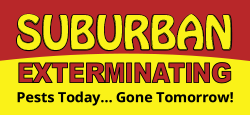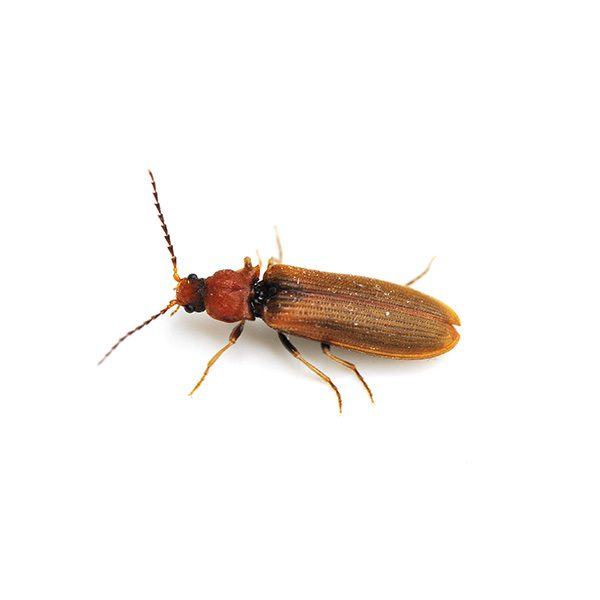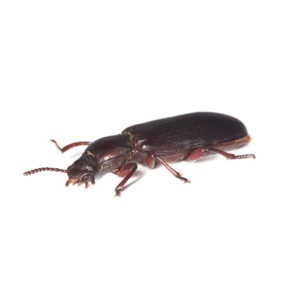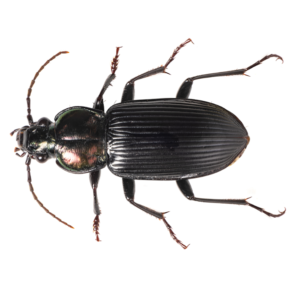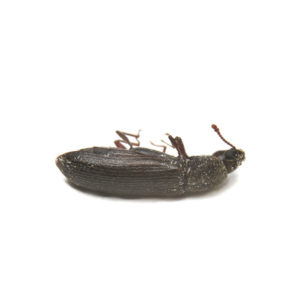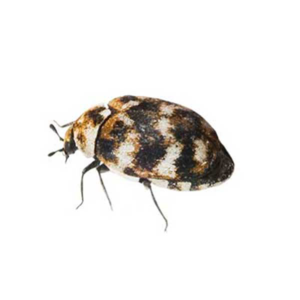Click Beetles in Suffolk County & Nassau County
Click beetles are found mainly in North America and Australia. They have rough, flat, oblong bodies with a spine-like structure that they can snap into a groove on their thorax. The sudden clicking noise is used in times of conflict to avoid being eaten. They also have an additional defense mechanism that works by falling on their backs and playing dead whenever touched.
Click Beetle Habitat
Generally click beetles tend to lay their larvae on plants and in decaying wood, where they can stay and feed for a long period of time. In residential areas they’re drawn to soil near abundant vegetation, like farmlands and gardens. It’s very rare to find them in deserts or flooded areas, and they’re less likely to enter yards with reduced outdoor lighting.
Click Beetle Behaviors, Threats or Dangers
Since they’re attracted to lights, it’s not uncommon to see click beetles gathered around doorways and windows at night. You may be able to hear their snapping or see them jump and flip. While the adults may not be anything other than a large nuisance, the larval wireworms have an aggressive appetite and can severely damage plant life. You can keep them from getting inside by making sure your doors, windows, eaves and chimneys seal tightly. To remove them from your property, you’ll need the help of the expert beetle exterminators at Suburban Exterminating.
Need help with Click Beetle control?
Click Beetle FAQs
What Do Click Beetles Look Like?
Adult click beetles are reddish-brown and may grow up to 1 ½ inches in length. They look very similar to a cockroach, and are, in fact, often mistaken for one. Their larvae are long and cylindrical in shape, have a relatively hard body, and resemble a mealworm.
If they become stuck on their back, the spine they have on the underside of their thorax fits into a groove that is found on the underside of their abdomen. When this happens they will arch their back and “snap” themselves straight.
What Are the Signs of Click Beetles?
Click beetles feed on plants (potatoes, roots, grains, cotton, and corn), pollen, and insects. During the summer months, these beetles will gather in large numbers on porches and decks after being attracted by artificial outdoor lighting. They make their way into structures through small openings that they find and can become quite a nuisance.
What Damage Do Click Beetles Cause?
They can cause some minor damage to crops and plants but are mainly viewed as a nuisance pest.
How Do You Prevent Click Beetles?
The best way to prevent click beetles from infesting is to implement an ongoing pest control plan that eliminates other insects (i.e. their food source). You may also find it helpful to seal openings found around doors and windows. We also recommend installing door sweeps and covering windows with screens.
How Do I Get Rid of Click Beetles?
The best ways to remove click beetles are:
- Identify and confirm the pest.
- Reduce outdoor lighting to minimize attraction.
- Seal entry points and gaps.
- Fix leaks and reduce moisture.
- Clean up debris around your home.
- Encourage natural predators and use beneficial nematodes.
- Consider insecticides for severe infestations.
- Plant trap crops to divert beetles.
- Use diatomaceous earth as a natural control method.
- If needed, seek assistance from professional pest control services, such as Suburban Exterminating, for effective and targeted solutions.
Can Click Beetles Hurt Me?
Click beetles are not dangerous to people. They can cause some minor damage to crops and plants but are mainly viewed as a nuisance pest.
